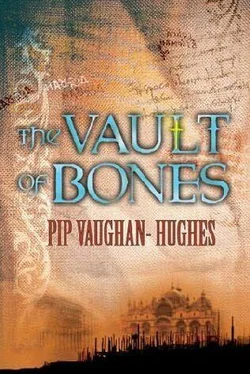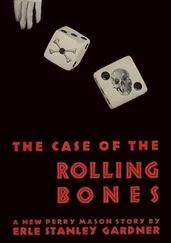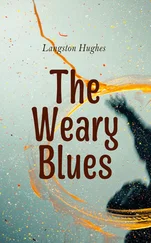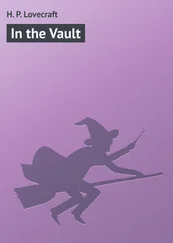Pip Vaughan-Hughes - The Vault of bones
Здесь есть возможность читать онлайн «Pip Vaughan-Hughes - The Vault of bones» весь текст электронной книги совершенно бесплатно (целиком полную версию без сокращений). В некоторых случаях можно слушать аудио, скачать через торрент в формате fb2 и присутствует краткое содержание. Жанр: Исторический детектив, на английском языке. Описание произведения, (предисловие) а так же отзывы посетителей доступны на портале библиотеки ЛибКат.
- Название:The Vault of bones
- Автор:
- Жанр:
- Год:неизвестен
- ISBN:нет данных
- Рейтинг книги:4 / 5. Голосов: 1
-
Избранное:Добавить в избранное
- Отзывы:
-
Ваша оценка:
- 80
- 1
- 2
- 3
- 4
- 5
The Vault of bones: краткое содержание, описание и аннотация
Предлагаем к чтению аннотацию, описание, краткое содержание или предисловие (зависит от того, что написал сам автор книги «The Vault of bones»). Если вы не нашли необходимую информацию о книге — напишите в комментариях, мы постараемся отыскать её.
The Vault of bones — читать онлайн бесплатно полную книгу (весь текст) целиком
Ниже представлен текст книги, разбитый по страницам. Система сохранения места последней прочитанной страницы, позволяет с удобством читать онлайн бесплатно книгу «The Vault of bones», без необходимости каждый раз заново искать на чём Вы остановились. Поставьте закладку, и сможете в любой момент перейти на страницу, на которой закончили чтение.
Интервал:
Закладка:
Here were my Greeks. Here were Anna's people. How many other secret charnel houses were there in this great, empty city? Constantinople was a tomb. The flimsy little torch had burned down until it was singeing my fingers. I flung it away, and it guttered for a while on the floor next to a skull, casting its looming, billowing shadow large upon the wall. I had to escape from here, but to where? I could not leave until dark, but then… I picked at a scab on my arm. Easy enough to climb out of this hole, but then I would have to leave the city. And perhaps I could slip past the guards: what then? I was a thousand leagues from anything I knew. Constantinople was ringed by enemies. I would fight or lie my way through, and then the whole of Greece was mine to cross on foot, penniless. And then the sea. To the north? Barbarian Cumans. To the east, Turks. To the south, the Greeks: the little empire of Anna's uncle. How far away were their lines? Then, subtle as a fly testing one's skin for signs of life or food, the tiny spark of a plan began to reveal itself.
It was a torture of high refinement just to wait out the rest of that day. I perched on the lower steps, too dispirited to light another torch, although it would have kept the shadows at. a distance. I did not wish to gaze upon the carnage. The dead were best left in the darkness, and I wished I had never disturbed them. As it was, the darkness lapped at the foot of the stairway like a dismal tide. And so, as soon as the light above me had faded from gold to pink and purple and then a dull grey, for the fog was rising from the Golden Horn as dusk came on, I turned my back on the hidden people of Constantinople and fairly ran up the stairs, the hairs on my neck prickling until they hurt, for I imagined that, as soon as I had turned my back, the shades that dwelt there had risen from their inky pool and were following me. I hurled myself over the rotten threshold and into the cold, taking a great gulp of the clean, sharp scent of elder-trees. I pushed my way urgently through the branches, feeling for brambles, and with every snag of their thorns in my leggings a nightmare bloomed in my mind: held fast in a dark thicket while the dead swarmed out of the grave-mouth behind me.
At last – how many hours were squeezed into those few seconds – I was free, and found myself gasping with relief in the tiny alleyway. The street beyond was deserted, as I knew it would be. The empty shells of the houses that overhung me on each side oppressed me horribly now that I had seen what had become of the folk who had dwelt in them and made this street and a thousand others bright and noisy with their lives. Soon enough I came to the square with the well and the old church. The body had gone, although it had left a dark, smeared trail: the two women must have dragged it off by the feet. I paused here to get my bearings: there was a faint glow in the west, despite the fog, whose tendrils were already exploring the square. Still retracing my mornings path, I jogged down the steps, turned a corner, and there, dark against the sky, were the mounded domes of Hagia Sophia, still a quarter-mile off.
Once I heard the clank of a patrol moving down a nearby street, but I saw not one soul. Only the cats turned the little lamps of their eyes to me as I crept past them. Soon I was cowering in the lee of the vast church, making sure that the square was empty. It towered above me, taller and more vast than anything in my experience. Arches looped and rolled, rising in tiers, sometimes supporting small domes. The front, before which I stood, resembled a gateway, with two mighty buttresses spanned by an arch, so enormous that a whole cathedral of windows, columns and archways were contained within it. The whole assembly was in thrall to the great dome which it supported. So high that my neck bones creaked as I threw back my head to take it in, it loomed like some unimaginably vast celestial body broken loose from its mooring in the heavens and now rising over the horizon of our world.
Chapter Twenty-Two
I do not care for churches, and I like cathedrals even less. They are forever bound up in my mind with the bloody event which wrenched my quiet, unimpeachably mundane life from its pleasant, dull cage and sent it flying into the teeth of the world's storms, a homing pigeon who no longer possessed a home. I saw a man butchered like a hog inside the cathedral that stood in the little English city where I was a student, saw his blood splash and steam on the tiles and caught it in my nostrils as it overwhelmed the comfortable church smells: old stone, beeswax, incense, dust and piety (piety has a smell known to every cleric: a subtle distillation of clothes kept long in chests, boiled food, the hair of infants and the soiled breeches of the elderly; priests afflicted by a congregation of the very pious will always be profligate burners of incense). I had thought to find this one a miracle, for Anna had talked of it as the very navel of the world, but in reality it hunkered bleakly over the ruined city like a heap of giant skulls. So I had avoided the place until now, fearing that the city's melancholy decay would be unbearable here. But when I crept through the great doors, I was amazed.
English cathedrals are generally somewhat sombre. They amaze with their avenues of stone pillars that rear up and divide like tree trunks – so delicate and yet so deceiving – but their great vaults are shadowy and even when the day is bright outside the dust motes dance sombrely in the perpetual twilight within. And so I walked through the grand doors of Hagia Sophia expecting to enter such a night-in-day, to be greeted instead by light: candlelight and lamp light reflecting from the polished stone, gold, and twinkling glass of the mosaics that covered the walls. If from the outside the sheer mass of the church was terrifying, inside there was so much luminous space that I felt almost weightless, as if I were about to rise like a transfigured soul up into the embrace of the dome, where Christ waited with open arms, an indulgent young father perched on a rainbow.
I made my way up to the southern gallery and cast about for the mosaic Zoe had described, and found it easily, for it was quite new and dazzlingly bright even by candlelight. I sank down on a shadowed bench nearby and watched the candles flickering. Every so often a black-swathed crone would shuffle over to light another taper, but otherwise I was blissfully alone. After a time, my eyelids drooped and I fell into a sort of deep daydream, in which ravens circled over Dartmoor tors and little trout flicked through amber water while sedge waved against an empty sky.
There was a loud, wet sniff, and it came from very nearby. I straightened up and looked about me. There was no one there, and I was about to lapse into my daydream, assuming my imagination had conjured an intruder, when the sniff came again, just by my left elbow. With a start I turned my head, and found myself looking at a grey head. A low marble sill ran around the base of the walls, and perched uncomfortably on this sat a man in the black robes of a cleric. The cloth was very dusty and full of rents and patches, and the man’s hair was thinning and dirty. His scalp showed through here and there, angrily painted with ringworm, and drifts of scurf salted his shoulders. Feeling my gaze, he turned and looked up into my face. I beheld red-ringed eyes, a doughy boozers nose and ashy skin. A long beard the colour of neglected silver spilled down his front. His neck was knobbed with scrofula, and he evidently had caught cold, for he sniffed again and wiped his nose with a sleeve that was already glistening with mucus. I gave a thoughtless shudder, then remembered myself and stood up. The man looked up at me, pulled at his nose and, using the smooth marble of the wall, slid himself upright. He regarded me with the intense gaze of a moth-eaten owl. 'My name is Walter,' he said.
Читать дальшеИнтервал:
Закладка:
Похожие книги на «The Vault of bones»
Представляем Вашему вниманию похожие книги на «The Vault of bones» списком для выбора. Мы отобрали схожую по названию и смыслу литературу в надежде предоставить читателям больше вариантов отыскать новые, интересные, ещё непрочитанные произведения.
Обсуждение, отзывы о книге «The Vault of bones» и просто собственные мнения читателей. Оставьте ваши комментарии, напишите, что Вы думаете о произведении, его смысле или главных героях. Укажите что конкретно понравилось, а что нет, и почему Вы так считаете.









